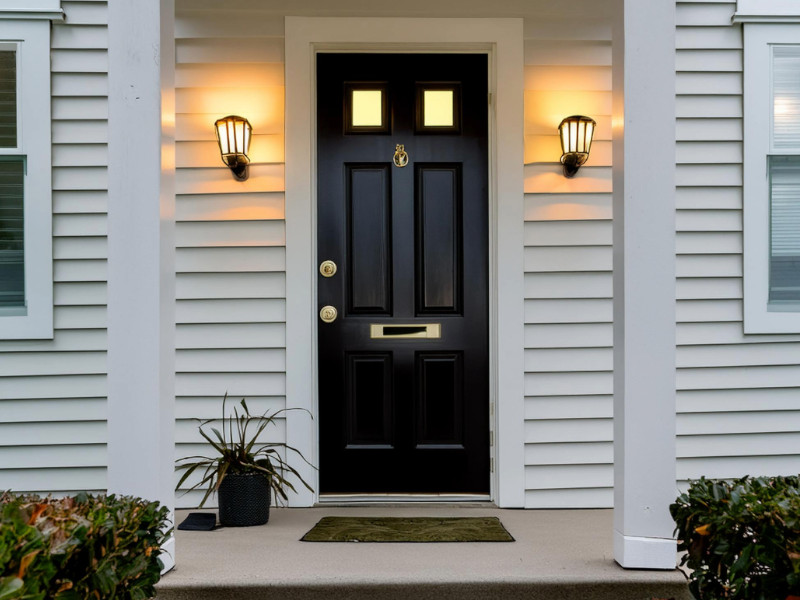
Ageing Well: Family's Reassurance of Safety
Ensuring safely at home in a secure and comforting environment, offers peace of mind to concerned family members.
5 Ways to Ensure Peace if Mind for Family - Ageing Well at Home
While seniors may benefit from ageing at home in terms of independence and quality of life, family members also find reassurance in knowing their loved ones stay safe while remaining at home. This post will explore the ways in which ageing at home may provide a secure and comforting environment, offering peace of mind to concerned family members.
1. Familiar Environment and Safety
Families often express concern about the safety of their aging loved ones. Aging at home, in a familiar environment, minimises the risks associated with having to adapt to new surroundings. Our loved ones are already acquainted with the layout of their homes and their neighbourhood, reducing the likelihood of accidents and promoting a safe living space. There are also opportunities to adjust and adapt the home environment as needed, ensuring that it continues to meet their evolving needs and enhances their safety.
2. Community and Neighbourly Support
Living in a community where one is known and recognised can be a safety-net for seniors. Neighbours often look out for each other, providing an additional layer of support and assistance. This sense of community contributes to the overall safety and wellbeing of seniors ageing at home, adding a layer of reassurance for family members, knowing others around the ageing family member also keeps an eye out for their wellbeing. This neighbourly support not only enhances the sense of security but also fosters a caring environment where seniors feel valued and protected, offering a network of contacts for families to engage with. Having someone to call on for the occasional check-in can be a game-changer.
3. Customised Care and Support
If some external support is required, there are options for personalised care and support tailored to individual needs while still remaining at home. Seniors can access a range of home-care and social services, from caregivers to healthcare professionals, ensuring that any specific requirements are met. These services can be self-funded, or there may be government-funded options available. Depending on where you live, there may be government agencies that can assess any needs, and provide available support. (Here in New Zealand this requires a Needs Assessment to be done by a local Needs Assessment Services provider, usually through the District Health Boards). A customised approach to healthcare contributes to physical wellbeing and enhances overall quality of life. Having some support at home can allow for continued independence ensuring living at home remains a viable option.
4. Access to Emergency Services
Ageing at home does not mean isolation from essential services. Seniors can have access to emergency services, healthcare providers, and support networks while remaining in their own houses. Access to a medical alarm (NZ) ensures a timely response to any medical or safety concerns, providing family members with the assurance that their loved ones can quickly receive the help they need. These can also be subsidised, depending on where you live. (In NZ this can be arranged via WINZ.)
5. Adaptable Home Modifications
The ability to make home modifications, whether through installing grab-bars, ramps, or other adjustments, enhances the safety of the living environment. Seniors can adapt their homes to suit their changing needs, creating a space that is both comfortable and secure. These modifications contribute to the peace of mind of family members, knowing that their loved ones are living in a home tailored to their requirements, being as safe as possible. We will discuss options of adaptive equipment and modifications more in future blog posts. A specialised builder may be able to install any relevant equipment or other make modification needed. Here in New Zealand, these home modifications may also be able to be funded and organised NASC. You can also start off with doing a safety self-assessment, using this form.
The content on this website does not constitute professional advice. The information provided is for general informational purposes only. For specific and personalised advice, particularly in areas such as health, finance, or legal matters, we recommend consulting with a qualified professional in the relevant field.
We use affiliate links which means we may earn a small commission if you purchase through these links. The commission comes at no additional cost to you and helps support the maintenance and upkeep of this site.
As one ages, it does not necessarily mean losing independence or having to leave your home. We're here to share tips and tricks for creating a sustainable home environment and habits to age safely in place; Safe at Home.